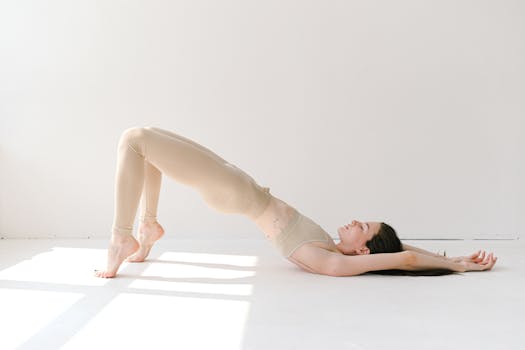
From Mat to Mind: How Yoga and Pilates Transform Your Mental Well-Being
Yoga and Pilates are two popular forms of exercise that have been practiced for centuries, not only for their physical benefits but also for their profound impact on mental health and well-being. As someone who has personally experienced the transformative power of these practices, I can attest to the fact that they have changed my life in ways I never thought possible. In this article, we’ll delve into the world of yoga and Pilates and explore how they can help you cultivate a stronger, more resilient mind.
My Journey with Yoga and Pilates

I still remember my first yoga class like it was yesterday. I was a bit skeptical at first, but as soon as I stepped onto the mat, I felt a sense of calm wash over me. The instructor’s soothing voice, the gentle stretches, and the focus on breathwork all combined to create an experience that was both challenging and therapeutic. From that day on, I was hooked. I started practicing yoga regularly, and soon I began to notice changes in my body and mind. I felt stronger, more flexible, and more centered, with a renewed sense of purpose and clarity.
As I continued to practice yoga, I also discovered the benefits of Pilates. Developed in the early 20th century by Joseph Pilates, this form of exercise focuses on building core strength, improving posture, and enhancing overall physical fitness. Like yoga, Pilates is a low-impact form of exercise that can be modified to suit different fitness levels and needs. I found that combining yoga and Pilates created a powerful synergy that took my physical and mental practice to the next level.
The Science Behind Yoga and Pilates

So, how exactly do yoga and Pilates impact our mental well-being? The answer lies in the complex interplay between our body, mind, and nervous system. When we practice yoga or Pilates, we’re not just stretching our muscles or building strength; we’re also stimulating our brain and nervous system. This stimulation can lead to a range of benefits, including reduced stress and anxiety, improved mood, and enhanced cognitive function.
One of the key ways that yoga and Pilates affect our mental health is by regulating our nervous system. Our nervous system has two main branches: the sympathetic nervous system (SNS) and the parasympathetic nervous system (PNS). The SNS is responsible for our ‘fight or flight’ response, while the PNS promotes relaxation and calm. When we’re under stress, our SNS is activated, leading to increased heart rate, blood pressure, and respiration. Yoga and Pilates can help calm the SNS and activate the PNS, leading to a state of deep relaxation and reduced stress.
In addition to their impact on our nervous system, yoga and Pilates also affect our brain chemistry. Regular practice has been shown to increase the production of neurotransmitters such as serotonin, dopamine, and endorphins, which are essential for mood regulation, motivation, and overall sense of well-being. This is why many people who practice yoga and Pilates report feeling more positive, confident, and resilient in the face of challenges.
Transforming Your Mental Well-Being with Yoga and Pilates

So, how can you harness the transformative power of yoga and Pilates to improve your mental well-being? Here are some tips to get you started:
- Find a qualified instructor: Look for a yoga or Pilates instructor who is experienced, knowledgeable, and compassionate. A good instructor can help you modify poses to suit your needs, provide feedback on your alignment, and create a safe and supportive environment for practice.
- Start slow: Don’t try to tackle advanced poses or sequences if you’re new to yoga or Pilates. Begin with gentle, beginner-friendly classes, and gradually build up your practice as you become more comfortable and confident.
- Focus on breathwork: Breath is the foundation of yoga and Pilates. Pay attention to your breath, and use it to guide your movements and calm your mind. Try incorporating breathwork exercises into your daily routine, such as deep breathing or meditation.
- Practice regularly: Consistency is key when it comes to experiencing the benefits of yoga and Pilates. Aim to practice at least 2-3 times per week, and ideally every day if possible.
- Make it a ritual: Create a sacred space for your practice, whether it’s a home studio, a local yoga studio, or a peaceful outdoor spot. Make your practice a ritual by lighting candles, playing soothing music, or sipping tea before or after your practice.
In conclusion, yoga and Pilates are two powerful tools that can transform your mental well-being and improve your overall quality of life. By understanding the science behind these practices, finding a qualified instructor, starting slow, focusing on breathwork, practicing regularly, and making it a ritual, you can harness their benefits and cultivate a stronger, more resilient mind. So why not give it a try? Roll out your mat, take a deep breath, and embark on a journey of self-discovery and transformation.







